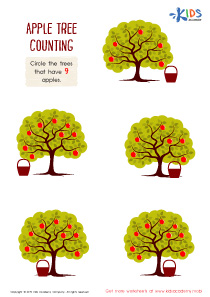Money recognition Extra Challenge Kindergarten Math Worksheets
4 filtered results
-
From - To
Encourage your child’s early math success with our "Money Recognition Extra Challenge Kindergarten Math Worksheets." Tailored for young learners, these engaging worksheets introduce basic money concepts while presenting challenging activities to reinforce their skills. Featuring colorful illustrations of coins and bills, these worksheets make lessons fun and effective. By completing tasks such as sorting, identifying, and matching money, your kindergarteners will build confidence in understanding currency. Ideal for classroom use or additional practice at home, this collection ensures a strong mathematical foundation and enhances recognition and value comparison abilities, setting the stage for future financial literacy.
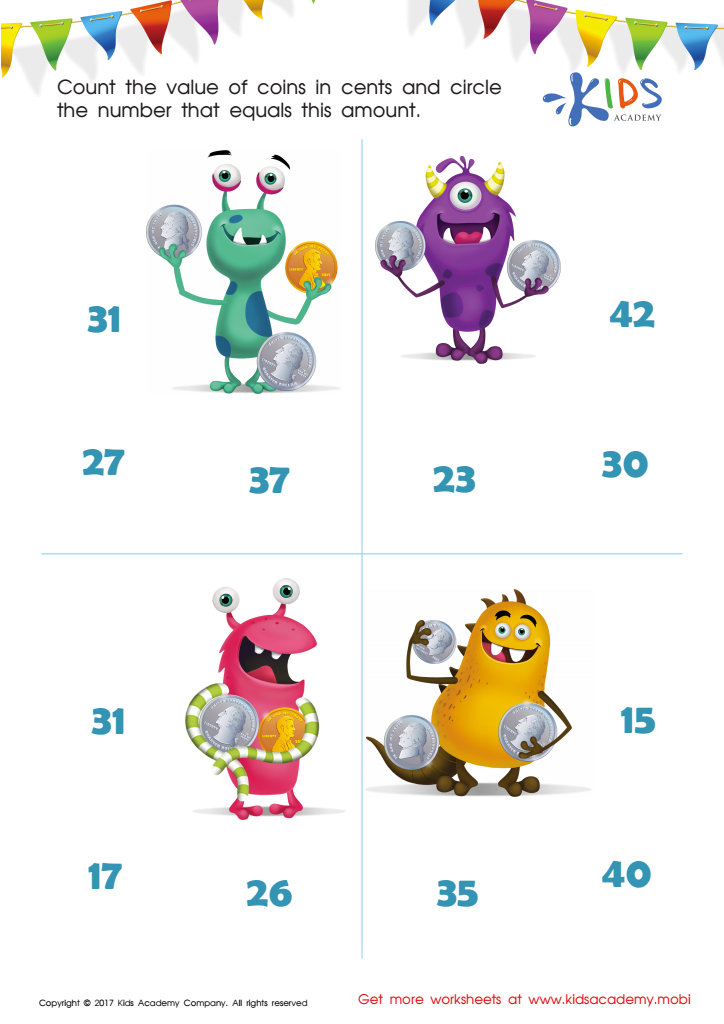

How Many Coins Money Worksheet
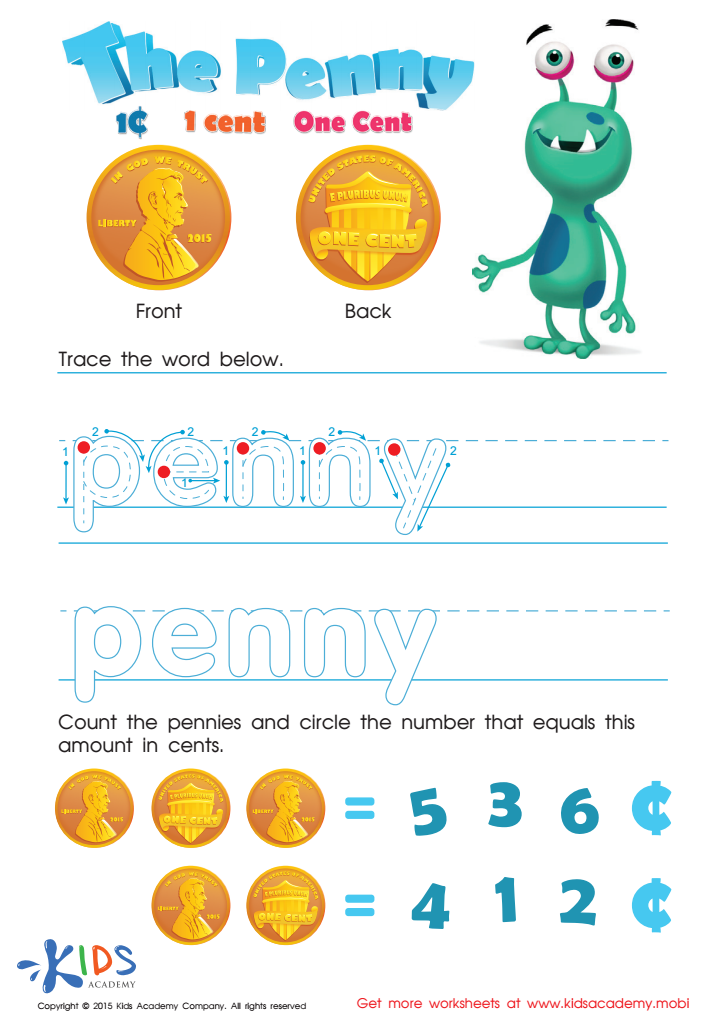

One Cent or the Penny Money Worksheet
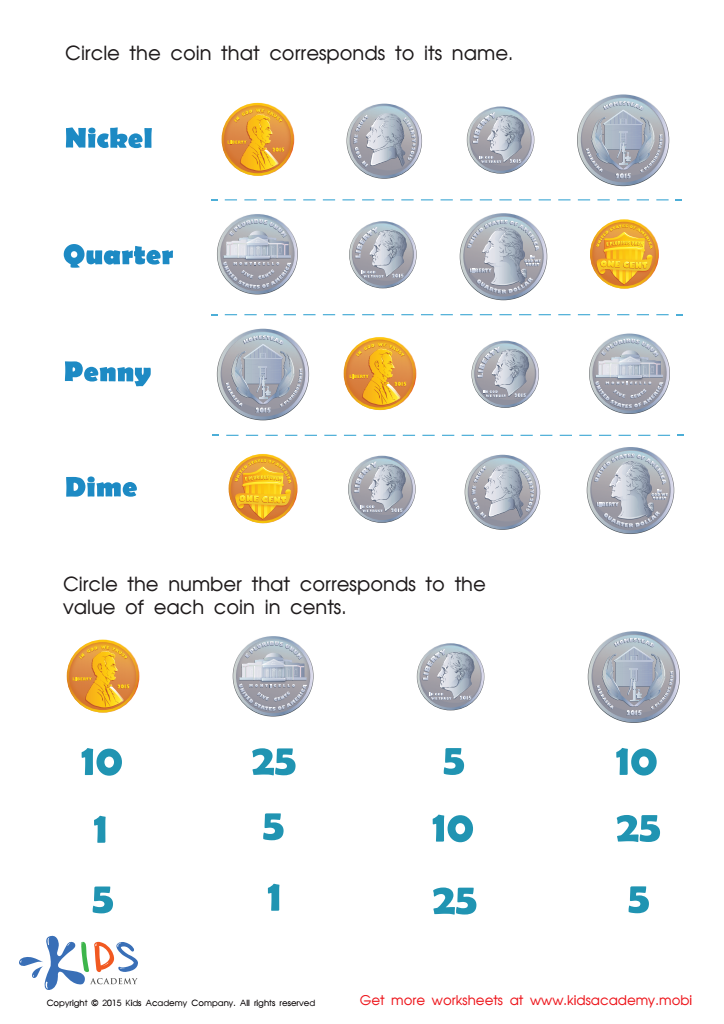

Coin Names and Values Money Worksheet
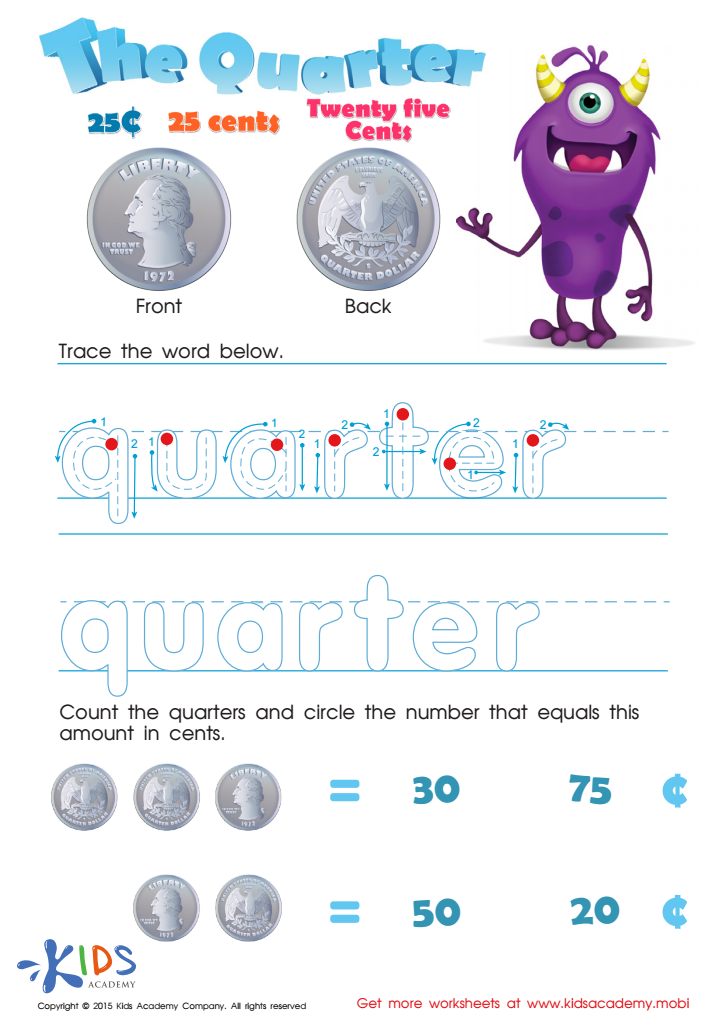

Twenty Five Cents or the Quarter Money Worksheet
Understanding money is a foundational life skill that young children need to develop early on, and integrating Money Recognition challenges into kindergarten math plays a crucial role. For parents and teachers, focusing on this aspect of education is important for several reasons.
Firstly, money recognition supports mathematical development. By identifying and understanding different coins and bills, children practice counting, addition, and subtraction, which fortifies their arithmetic skills. Engaging in activities that involve real-world applications makes these abstract concepts more tangible, increasing children's comprehension and retention of basic math principles.
Secondly, financial literacy is a crucial life skill. Introducing children to money early helps them understand the value of different denominations, budgeting, and the importance of saving versus spending. This early exposure lays the groundwork for financially responsible behavior in the future.
Additionally, involving children in money-based activities can enhance other skills such as fine motor dexterity, when handling coins, as well as critical thinking, while deciding on transactions or making changes.
For parents and teachers, integrating Money Recognition Extra Challenge Kindergarten Math creates a stimulating and practical learning environment. It encourages children to develop a comprehensive skill set that is not only beneficial academically but also vitally important for everyday life.

 Assign to My Students
Assign to My Students





.jpg)







